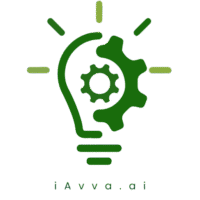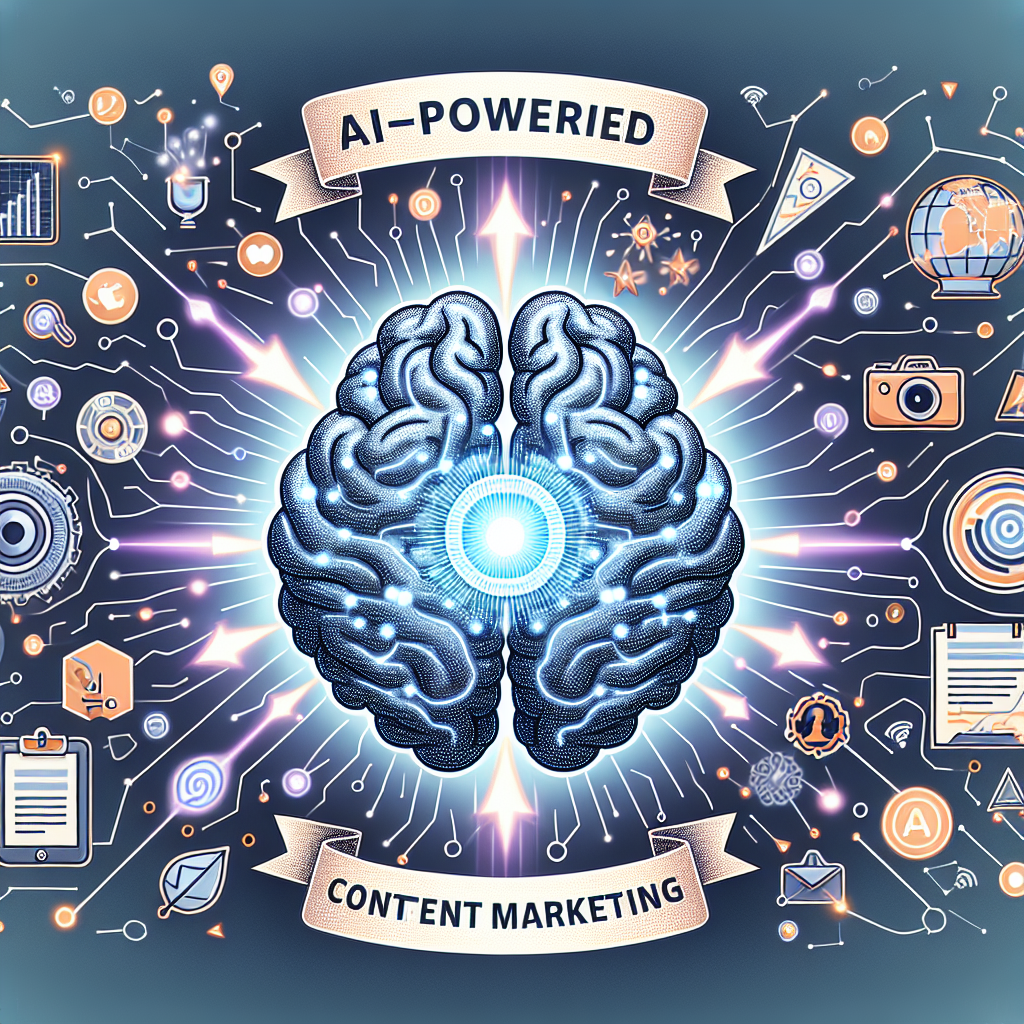In recent years, the corporate landscape has witnessed a seismic shift, with artificial intelligence (AI) emerging as a transformative force in various sectors. The rise of AI in corporate training is not merely a trend; it represents a fundamental change in how organizations approach employee development. According to a report by McKinsey, companies that invest in AI-driven training solutions can expect to see productivity gains of up to 40%.
This statistic underscores the urgency for businesses to adapt and embrace AI technologies to remain competitive in an increasingly digital world. The COVID-19 pandemic accelerated the adoption of digital tools, pushing organizations to rethink their training methodologies.
AI has stepped in to fill this gap, offering innovative solutions that enhance the learning experience. From chatbots that provide instant support to algorithms that analyze learning patterns, AI is revolutionizing how employees acquire new skills and knowledge. As we delve deeper into this topic, it becomes clear that the integration of AI into corporate training is not just beneficial; it is essential for fostering a culture of continuous learning. Try iAvva AI coach app for free.
Key Takeaways
- AI is revolutionizing corporate training by providing personalized learning paths and real-time feedback.
- AI is transforming the learning experience by creating more engaging and interactive training programs.
- Personalized learning paths powered by AI are enhancing employee retention and engagement.
- Real-time feedback and assessment through AI are improving the effectiveness of training programs.
- Integration of AI into learning management systems is shaping the future of corporate training with predictions and trends.
How AI is Transforming the Learning Experience
AI is reshaping the learning experience by making it more interactive, engaging, and tailored to individual needs. Traditional training methods often rely on a one-size-fits-all approach, which can leave many employees feeling disengaged or overwhelmed. In contrast, AI-driven platforms utilize data analytics to create dynamic learning environments that adapt to the learner’s pace and style.
For instance, platforms like Coursera and Udacity leverage AI algorithms to recommend courses based on users’ previous interactions and preferences, ensuring that each learner receives a personalized experience. Moreover, AI enhances the interactivity of training programs through gamification and immersive technologies such as virtual reality (VR) and augmented reality (AR). These tools not only make learning more enjoyable but also improve knowledge retention.
A study by PwC found that employees who engage in VR training are four times more focused than their peers in traditional classroom settings. This level of engagement is crucial for fostering a culture of innovation and adaptability within organizations, as employees are more likely to embrace new ideas and practices when they feel invested in their learning journey.
The Role of AI in Personalized Learning Paths

One of the most significant advantages of AI in corporate training is its ability to create personalized learning paths for employees. Each individual has unique strengths, weaknesses, and learning preferences, and AI can analyze these factors to design tailored training programs. By leveraging machine learning algorithms, organizations can identify skill gaps and recommend specific courses or resources that align with an employee’s career goals.
For example, IBM’s Watson has been instrumental in developing personalized learning experiences for its workforce. By analyzing employee performance data and feedback, Watson can suggest relevant training modules that address specific skill deficiencies. This level of customization not only enhances employee satisfaction but also drives productivity by ensuring that employees acquire the skills they need to excel in their roles.
As organizations continue to prioritize employee development, the demand for personalized learning solutions powered by AI will only grow.
The Impact of AI on Employee Retention and Engagement
| Metrics | Data |
|---|---|
| Employee Turnover Rate | 10% |
| Employee Satisfaction Score | 85% |
| Retention Cost Savings | 500,000 |
| Engagement Survey Results | 4.5 out of 5 |
Employee retention is a critical concern for organizations, particularly in today’s competitive job market. Research indicates that companies with strong learning cultures experience 30-50% higher employee retention rates. AI plays a pivotal role in fostering this culture by providing employees with continuous learning opportunities that align with their career aspirations.
When employees feel supported in their professional development, they are more likely to remain loyal to their organization. Furthermore, AI-driven training programs enhance engagement by offering real-time feedback and recognition. Employees can track their progress and receive instant insights into their performance, which fosters a sense of accomplishment and motivation.
A study conducted by Gallup found that employees who receive regular feedback are three times more likely to be engaged at work. By integrating AI into training initiatives, organizations can create an environment where employees feel valued and empowered to take charge of their learning journey.
Leveraging AI for Real-time Feedback and Assessment
The traditional model of annual performance reviews is becoming obsolete as organizations recognize the need for more agile feedback mechanisms. AI enables real-time feedback and assessment, allowing employees to receive immediate insights into their performance and areas for improvement. This shift not only enhances the learning experience but also promotes a culture of continuous improvement.
AI-powered assessment tools can analyze employee interactions during training sessions, identifying strengths and weaknesses in real-time. For instance, platforms like EdApp utilize AI algorithms to assess learner engagement and comprehension levels during microlearning sessions. This data allows trainers to adjust their approach on-the-fly, ensuring that employees receive the support they need when they need it most.
By leveraging AI for real-time feedback, organizations can create a more responsive and adaptive training environment that meets the evolving needs of their workforce.
The Integration of AI into Learning Management Systems

Learning Management Systems (LMS) have long been a staple in corporate training, but the integration of AI is taking these platforms to new heights. Modern LMS solutions equipped with AI capabilities can analyze vast amounts of data to provide insights into learner behavior, course effectiveness, and overall training outcomes. This data-driven approach allows organizations to make informed decisions about their training strategies.
For example, platforms like Docebo leverage AI to automate administrative tasks such as course recommendations and content curation. By analyzing user data, Docebo can suggest relevant courses based on an employee’s previous interactions and performance metrics. This level of automation not only saves time for trainers but also ensures that employees receive personalized learning experiences tailored to their needs.
As organizations continue to invest in technology-driven solutions, the integration of AI into LMS will become increasingly essential for optimizing training outcomes.
The Future of AI in Corporate Training: Predictions and Trends
As we look ahead, the future of AI in corporate training appears promising and full of potential. One key trend is the increasing use of natural language processing (NLP) technologies to enhance communication between learners and training systems. Chatbots powered by NLP can provide instant support and answer questions in real-time, creating a more interactive learning experience.
Additionally, we can expect to see greater integration of AI with other emerging technologies such as blockchain and the Internet of Things (IoT). Blockchain can enhance the security and transparency of training records, while IoT devices can provide valuable data on employee engagement during training sessions. Together, these technologies will create a more holistic approach to corporate training that prioritizes personalization and adaptability.
Overcoming Challenges in Implementing AI for Training
Despite the numerous benefits of AI in corporate training, organizations may face challenges when implementing these technologies. One significant hurdle is the resistance to change among employees who may be accustomed to traditional training methods. To overcome this resistance, organizations must prioritize communication and education about the benefits of AI-driven training solutions.
Another challenge lies in data privacy and security concerns. Organizations must ensure that they comply with regulations such as GDPR when collecting and analyzing employee data for training purposes. By establishing clear policies around data usage and security, organizations can build trust with their employees while leveraging the power of AI for training.
Ethical Considerations in AI-driven Training Programs
As organizations increasingly rely on AI for corporate training, ethical considerations must be at the forefront of decision-making processes. Issues such as bias in algorithms and data privacy are critical concerns that organizations must address proactively. For instance, if an AI system is trained on biased data, it may inadvertently perpetuate inequalities in training opportunities.
To mitigate these risks, organizations should prioritize transparency in their AI systems and regularly audit algorithms for bias. Additionally, involving diverse teams in the development and implementation of AI-driven training programs can help ensure that multiple perspectives are considered. By taking a proactive approach to ethics in AI, organizations can create inclusive training environments that benefit all employees.
Case Studies: Successful Implementation of AI in Corporate Training
Several organizations have successfully implemented AI-driven training solutions with remarkable results. One notable example is Unilever, which has integrated AI into its recruitment and onboarding processes.
Another case study involves Accenture, which has leveraged AI-powered virtual reality simulations for employee training. These immersive experiences allow employees to practice real-world scenarios in a safe environment, enhancing their skills and confidence before facing actual challenges on the job. As these case studies demonstrate, the successful implementation of AI in corporate training can lead to significant improvements in employee performance and satisfaction.
Tips for Choosing the Right AI Training Solutions for Your Organization
When selecting an AI-driven training solution for your organization, several factors should be considered to ensure alignment with your goals and objectives. First and foremost, assess your organization’s specific needs and identify skill gaps that require immediate attention. This will help you choose a solution that addresses your unique challenges.
Next, prioritize user experience when evaluating different platforms. An intuitive interface will encourage employee engagement and adoption of the new system. Additionally, consider scalability; as your organization grows, your training solution should be able to adapt accordingly.
Finally, ensure that any chosen solution complies with data privacy regulations and ethical standards. By taking these factors into account, organizations can select the right AI training solutions that drive meaningful results while fostering a culture of continuous learning. In conclusion, the rise of AI in corporate training represents a paradigm shift that offers unprecedented opportunities for organizations willing to embrace change.
By leveraging AI technologies to personalize learning experiences, enhance engagement, and drive employee retention, businesses can position themselves for success in an ever-evolving landscape. As we move forward into this new era of corporate training, it is essential for organizations to remain agile and proactive in adopting innovative solutions that empower their workforce for the future.
In the rapidly evolving landscape of corporate training, AI is playing a pivotal role in transforming traditional methods into more dynamic and personalized learning experiences. A related article that delves into the broader impact of AI is How AI is Revolutionizing Android Smartphones. This piece explores how AI technologies are not only enhancing smartphone functionalities but also reshaping various industries, including corporate training, by providing innovative solutions that cater to individual learning needs and preferences.
FAQs
What is AI for Training?
AI for Training refers to the use of artificial intelligence technology to enhance and improve corporate training programs. This can include using AI for personalized learning, content curation, skills assessment, and performance tracking.
How does AI enhance corporate training?
AI enhances corporate training by providing personalized learning experiences, automating administrative tasks, analyzing data to identify learning gaps, and delivering real-time feedback to learners. This results in more efficient and effective training programs.
What are the benefits of using AI for training?
The benefits of using AI for training include improved learning outcomes, reduced training costs, increased employee engagement, and the ability to scale training programs to a larger audience. AI can also help identify and address individual learning needs.
What are some examples of AI for training applications?
Examples of AI for training applications include virtual reality simulations for hands-on training, chatbots for answering learner questions, adaptive learning platforms that personalize content, and predictive analytics for identifying at-risk learners.
What are the potential challenges of implementing AI for training?
Challenges of implementing AI for training may include the initial cost of investment, data privacy concerns, the need for upskilling trainers to use AI tools, and ensuring that AI algorithms are unbiased and fair in their assessments.










Leave a Reply